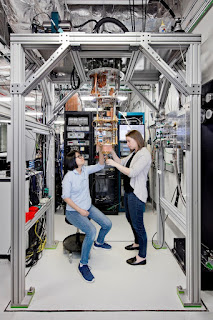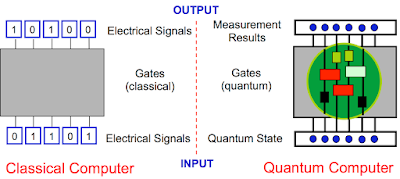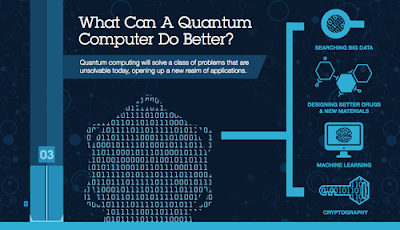Twitter Feed
OMG Cloud Standards Summit
July 13-15, 2009, in Arlington, VA, the Object Management Group, is holding a Standards in Government & NGO’s Workshop. During the first day, the Cloud Computing Standards Summit will focus…
NDU IRM Cloud Computing Event “Sold Out”!!!
Hope you’ve already registered for the “The Cloud Computing Symposium” , Wednesday, July 15, 2009 at the National Defense University in Washington, DC! This promises to be the premier government…
SSA’s Jim Borland on Healthcare Information Technology
Today, on this week’s Federal News Radio Federal Executive Forum webcast, Mr. Jim Borland, Special Advisor for Health IT, Office of the Commissioner, Social Security Administration(SSA), will discuss the value…
Dr. Leslie Lenert of CDC Speaks on Healthcare IT
During this week’s Federal News Radio Federal Executive Forum pre-recording, Dr. Leslie Lenert, Director, National Center for Public Health Informatics (NCPHI) at the Centers for Disease Control and Prevention (CDC),…
Linda Fischetti on VHA Healthcare
This week pre-recording of Federal News Radio Federal Executive Forum featured Linda Fischetti , Health Informatics Architect at the Veterans Health Administration (VHA). During a panel discussion, her comments on…
Vish Sankaran, HHS, Speaks on Healthcare IT
During the pre-recording of this weeks Federal News Radio Federal Executive Forum, Vish Sankaran, Program Director of Federal Health Architecture, discussed the role of information technology in improving the country’s…
Iranian Protests Showcase Twitter, Facebook, YouTube (and Cloud Computing) !
In covering unfolding events in Iran, the world’s most powerful news outlets have been entirely dependent on the Twitter-provided flow of text, images, and video. While this has definitely showcased…
Two Days with AWS Federal
Today, I start two days of training with Amazon Web Services (AWS) Federal. If that’s the first time you’ve ever heard about an AWS Federal division, your not alone. Held…
Maneuver Warfare in IT: A Cheerleading Pundit
The Twitter conversation between Christofer Hoff and I went like this: Christofer – I haven’t formally blogged a resp. (yet) to @Kevin_Jackson on his ‘maneuver warfare in IT’ Not just a cultural shift but a…
Expanding Maneuver Warfare in IT
Earlier this week I published “Cloud Computing: The Dawn of Maneuver Warfare in IT Security” via Ulitzer. In publishing the article my intent was to explore the more dynamic approach…
- The release of a new API (Application Program Interface) for the IBM Quantum Experience that enables developers and programmers to begin building interfaces between its existing five quantum bit (qubit) cloud-based quantum computer and classical computers, without needing a deep background in quantum physics.
- The release of an upgraded simulator on the IBM Quantum Experience that can model circuits with up to 20 qubits. In the first half of 2017, IBM plans to release a full SDK (Software Development Kit) on the IBM Quantum Experience for users to build simple quantum applications and software programs.
The IBM Quantum Experience enables anyone to connect to IBM’s quantum processor via the IBM Cloud, to run algorithms and experiments, work with the individual quantum bits, and explore tutorials and simulations around what might be possible with quantum computing. Since its launch less than a year ago, about 40,000 users have run over 275,000 experiments on the IBM Quantum Experience. It has become an enablement tool for scientists in over 100 countries and, to date, 15 third-party research papers have been posted to arXiv with five published in leading journals based on experiments run on the Quantum Experience.
 The broad availability of quantum computing capability could prove to be a significant blow to current data encryption practices. In 2015 the US National Security Agency actually advised US agencies and businesses to prepare for a time when the cryptography protecting virtually all e-mail, medical and financial records, and online transactions would be rendered obsolete by quantum computing. The US National Institute for Standards and Technology (NIST) is also running a competition to spur work on post-quantum algorithms.
The broad availability of quantum computing capability could prove to be a significant blow to current data encryption practices. In 2015 the US National Security Agency actually advised US agencies and businesses to prepare for a time when the cryptography protecting virtually all e-mail, medical and financial records, and online transactions would be rendered obsolete by quantum computing. The US National Institute for Standards and Technology (NIST) is also running a competition to spur work on post-quantum algorithms. - Drug and Materials Discovery: Untangling the complexity of molecular and chemical interactions leading to the discovery of new medicines and materials;
- Supply Chain & Logistics: Finding the optimal path across global systems of systems for ultra-efficient logistics and supply chains, such as optimizing fleet operations for deliveries during the holiday season;
- Financial Services: Finding new ways to model financial data and isolating key global risk factors to make better investments;
- Artificial Intelligence: Making facets of artificial intelligence such as machine learning much more powerful when data sets can be too big such as searching images or video; or
- Cloud Security: Making cloud computing more secure by using the laws of quantum physics to enhance private data safety.
This content is being syndicated through multiple channels. The opinions expressed are solely those of the author and do not represent the views of GovCloud Network, GovCloud Network Partners or any other corporation or organization.
( Thank you. If you enjoyed this article, get free updates by email or RSS – © Copyright Kevin L. Jackson 2017)
Cloud Computing
- CPUcoin Expands CPU/GPU Power Sharing with Cudo Ventures Enterprise Network Partnership
- CPUcoin Expands CPU/GPU Power Sharing with Cudo Ventures Enterprise Network Partnership
- Route1 Announces Q2 2019 Financial Results
- CPUcoin Expands CPU/GPU Power Sharing with Cudo Ventures Enterprise Network Partnership
- ChannelAdvisor to Present at the D.A. Davidson 18th Annual Technology Conference
Cybersecurity
- Route1 Announces Q2 2019 Financial Results
- FIRST US BANCSHARES, INC. DECLARES CASH DIVIDEND
- Business Continuity Management Planning Solution Market is Expected to Grow ~ US$ 1.6 Bn by the end of 2029 - PMR
- Atos delivers Quantum-Learning-as-a-Service to Xofia to enable artificial intelligence solutions
- New Ares IoT Botnet discovered on Android OS based Set-Top Boxes




